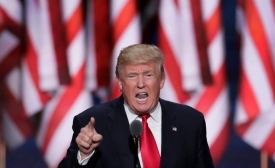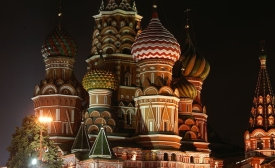election interference

Mark Dillen examines President Trump's confusing communications regarding Russia and Ukraine.
Russia President Vladimir Putin denies meddling in U.S. politics — though he sometimes suggests, with a wink, that “patriotic” Russians may have done so. But there is one point that he always insists on: that the United States does the same to others. He has charged that the U.S. government interfered “aggressively” in Russia’s 2012 presidential vote, which Putin won after a year of protests against him. He claims that Washington “gathered opposition forces and financed them.”

Mark Dillen explores the Trump administration's response to Russia's current disinformation campaign.
As the United States grapples with the implications of Kremlin interference in American politics, European countries are deploying a variety of bold tactics and tools to expose Russian attempts to sway voters and weaken European unity. Across the continent, counterintelligence officials, legislators, researchers and journalists have devoted years — in some cases, decades — to the development of ways to counter Russian disinformation, hacking and trolling. And they are putting them to use as never before.
While the days of its worst behavior are long behind it, the United States does have a well-documented history of interfering and sometimes interrupting the workings of democracies elsewhere. It has occupied and intervened militarily in a whole swath of countries in the Caribbean and Latin America and fomented coups against democratically elected populists.
An FBI probe will tell us more about the current email intrusion, although it will take time before we know exactly who (and if Russia) is potentially behind hacking into the DNC's network. But one thing is certain: The Russians have been perfecting the art of manipulating information in recent years to sway public opinion within Russia and around the world in the hopes of building up the stature of Russian President Vladimir Putin.







